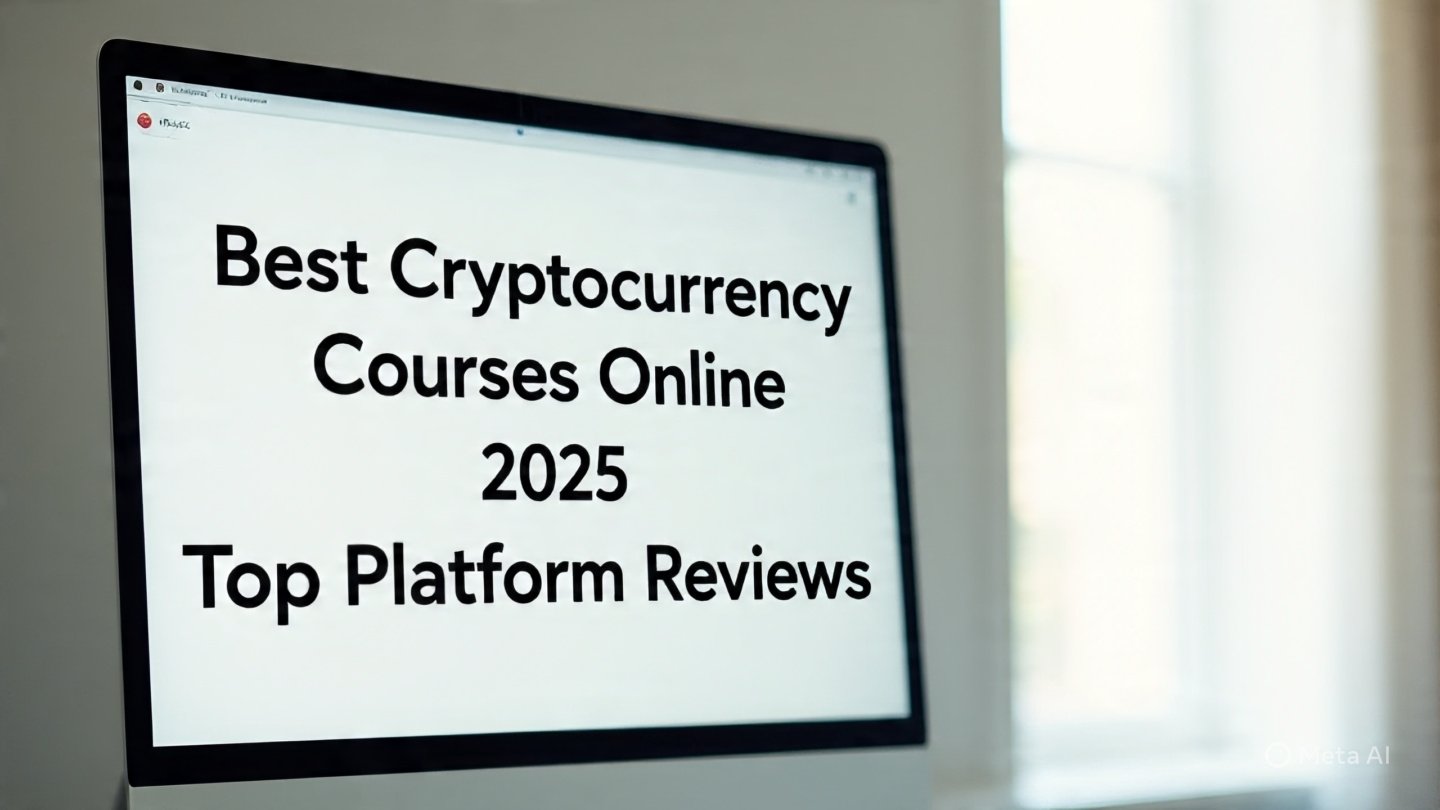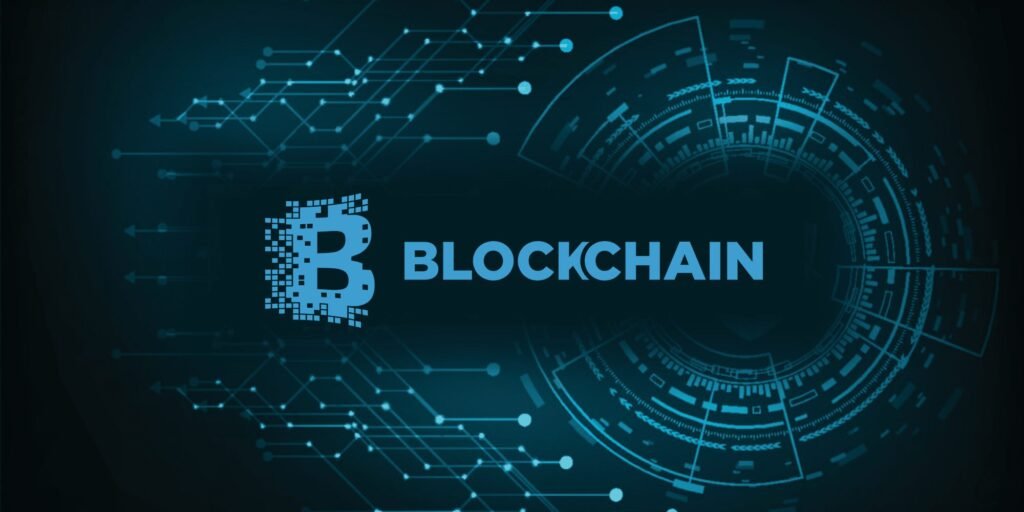The digital currency revolution continues to reshape the global financial landscape, and finding the best cryptocurrency courses online in 2025 has become crucial for anyone looking to participate in this transformative industry. Whether you’re a complete beginner seeking foundational knowledge or an experienced investor wanting to deepen your understanding, the right educational platform can accelerate your journey into the world of digital assets. With blockchain technology evolving rapidly and new cryptocurrencies emerging regularly, staying updated through quality education has never been more critical. This comprehensive guide examines the top-rated cryptocurrency learning platforms, helping you make an informed decision about your crypto education investment.
Why Cryptocurrency Education Matters in 2025
The cryptocurrency market has matured significantly since Bitcoin’s inception, evolving from a niche technology into a mainstream financial instrument. As institutional adoption accelerates and regulatory frameworks solidify, understanding cryptocurrency fundamentals becomes essential for modern investors and professionals.
Educational platforms have responded to this growing demand by developing comprehensive curricula that cover everything from basic blockchain concepts to advanced trading strategies. The complexity of decentralised finance (DeFi), non-fungible tokens (NFTs), and emerging consensus mechanisms necessitates structured learning approaches, which only quality courses can provide.
Professional credentials in cryptocurrency and blockchain technology are increasingly valuable in today’s job market. Many Fortune 500 companies now seek employees with verified crypto knowledge, making certification programs more relevant than ever before.
Best Cryptocurrency Courses Online 2025: Top Platform Reviews

Coursera’s Cryptocurrency and Blockchain Technology Specialisation
Coursera partners with leading universities to offer accredited cryptocurrency courses that combine academic rigour with practical applications. Their specialisation programs typically span 4-6 months and include hands-on projects that reinforce theoretical concepts.
The platform’s strength lies in its university partnerships, particularly with Princeton University and the University of Pennsylvania, which provide credible backing for their cryptocurrency curricula. Students receive certificates upon completion, adding valuable credentials to their professional profiles.
Interactive assignments and peer review systems create engaging learning environments where students can collaborate and learn from diverse perspectives. The courses cover fundamental concepts like cryptographic hashing, consensus algorithms, and innovative contract development.
Udemy’s Comprehensive Crypto Course Collection
Udemy hosts thousands of cryptocurrency courses ranging from beginner-friendly introductions to advanced technical deep-dives. The platform’s strength lies in its diverse instructor base, which includes industry practitioners, academic experts, and successful traders.
Popular courses on Udemy often feature lifetime access policies, allowing students to revisit material as the cryptocurrency landscape evolves. This flexibility proves invaluable given the rapid pace of innovation in blockchain technology.
The platform’s rating system helps identify high-quality content, with top-rated courses receiving thousands of positive reviews from satisfied students. Course prices remain affordable, with frequent sales making quality education accessible to broader audiences.
Binance Academy’s Free Educational Resources
Binance Academy stands out by offering completely free cryptocurrency education through one of the world’s largest crypto exchanges. Their content covers beginner concepts through advanced trading strategies, making it suitable for learners at all levels.
The academy’s strength lies in real-world relevance, as content creators understand practical cryptocurrency applications from daily exchange operations. Articles, videos, and interactive quizzes provide multiple learning formats to accommodate different learning preferences.
Regular updates ensure content remains current with market developments and regulatory changes. The platform’s glossary section serves as an excellent reference tool for understanding crypto terminology and concepts.
LinkedIn Learning’s Professional Development Focus
LinkedIn Learning approaches cryptocurrency education from a professional development perspective, emphasising career applications and business implications of blockchain technology. Their courses often focus on how cryptocurrency impacts various industries and business models.
The platform’s integration with LinkedIn profiles allows learners to showcase completed courses directly on their professional networks. This visibility can attract potential employers and business partners interested in blockchain expertise.
Course quality remains consistently high due to LinkedIn’s rigorous instructor vetting process. Professional instructors bring real-world experience and business acumen to their teaching approaches.
edX’s University-Level Cryptocurrency Programs
edX collaborates with prestigious universities to offer university-level cryptocurrency and blockchain courses. MIT, Harvard, and other top institutions contribute to their course catalogue, ensuring academic excellence and cutting-edge content.
The platform offers both free audit options and paid verified certificates, making quality education accessible while providing credentialing options for serious learners. Course structures mirror traditional university formats with assignments, exams, and grading systems.
Research-based approaches characterise edX courses, often incorporating the latest academic research and industry studies. This scholarly perspective provides deep theoretical foundations that complement practical applications.
Essential Topics Covered in Top Cryptocurrency Courses
Blockchain Fundamentals and Technology
Understanding blockchain technology forms the foundation of cryptocurrency education. Quality courses explain distributed ledger concepts, cryptographic principles, and consensus mechanisms in accessible terms while maintaining technical accuracy.
Students learn about different blockchain architectures, including public, private, and consortium networks. Hash functions, digital signatures, and Merkle trees receive detailed coverage as fundamental building blocks of secure blockchain systems.
Practical exercises often include setting up blockchain nodes, exploring block explorers, and understanding transaction verification processes. These hands-on activities reinforce theoretical concepts through direct experience.
Cryptocurrency Trading and Investment Strategies
Professional trading education covers technical analysis, fundamental analysis, and risk management principles specific to cryptocurrency markets. Students learn to read price charts, identify market trends, and execute profitable trading strategies.
Portfolio diversification strategies receive significant attention, teaching students how to balance risk across different cryptocurrency assets and traditional investments. Dollar-cost averaging, rebalancing techniques, and exit strategies form core curriculum components.
Market psychology and behavioural finance concepts help students understand emotional decision-making pitfalls that commonly affect cryptocurrency investors. This psychological awareness proves crucial for long-term success.
Innovative contract programming receives hands-on treatment through platforms like Ethereum and Solana. Students learn Solidity programming language basics and deploy simple contracts on testnets.
Security considerations receive paramount attention, as smart contract vulnerabilities can result in significant financial losses. Course content includes common attack vectors and defensive programming practices.
Regulatory Compliance and Legal Frameworks
Cryptocurrency regulation continues evolving globally, making compliance education essential for serious practitioners. Courses cover reporting requirements, tax implications, and anti-money laundering (AML) obligations.
Different jurisdictional approaches receive comparative analysis, helping students understand how location affects cryptocurrency legality and taxation. This knowledge proves crucial for international investors and businesses.
Emerging regulatory trends receive regular updates as governments worldwide develop comprehensive cryptocurrency frameworks. Students learn to anticipate regulatory changes and adapt their strategies accordingly.
Key Features to Look for in Cryptocurrency Courses
Instructor Credibility and Experience
Instructor backgrounds significantly impact course quality and practical relevance. Look for educators with demonstrated cryptocurrency experience, whether through successful trading, blockchain development, or academic research.
Industry connections often translate into current market insights and networking opportunities for students. Instructors actively working in cryptocurrency fields bring real-world perspectives that purely academic approaches might miss.
Teaching ability matters as much as subject matter expertise. Effective instructors can explain complex concepts clearly and engage students through varied instructional methods.
Course Content, Currency, and Updates
Cryptocurrency markets evolve rapidly, making content freshness crucial for educational value. Courses should include recent market developments, regulatory changes, and technological innovations.
Regular content updates demonstrate the instructor’s commitment to maintaining educational relevance. Look for courses with recent student reviews mentioning current market conditions and developments.
Version control and update notifications help students stay informed about course improvements and additions. This ongoing maintenance indicates professional course management and instructor dedication.
Practical Applications and Projects
Theoretical knowledge gains value through practical application opportunities. Quality courses include hands-on projects, case studies, and real-world scenarios that reinforce learning objectives.
Portfolio simulation exercises allow students to practice investment strategies without financial risk. These safe learning environments encourage experimentation and learning from mistakes.
Capstone projects often require students to demonstrate a comprehensive understanding through independent research or analysis. These culminating experiences solidify learning and create portfolio pieces for career advancement.
Community Support and Networking
Learning communities enhance educational experiences through peer interaction and collaborative problem-solving. Active discussion forums and study groups provide ongoing support beyond course completion.
Networking opportunities with fellow students and industry professionals can lead to career advancement and business partnerships—many successful cryptocurrency professionals credit educational networking for their career breakthroughs.
Instructor accessibility through office hours, Q&A sessions, and feedback on assignments demonstrates a commitment to student success. This personal attention often distinguishes premium courses from basic offerings.
Certification and Credentialing Options
Industry-Recognized Certifications
Professional certifications add credibility to cryptocurrency knowledge and demonstrate commitment to the field. Organisations like the Blockchain Council and Cryptocurrency Certification Consortium offer standardised credentialing programs.
Certification requirements typically include course completion, examinations, and continuing education obligations. These structured approaches ensure certified professionals maintain current knowledge as the industry evolves.
Employer recognition of cryptocurrency certifications continues growing as blockchain adoption accelerates across industries. Many job postings now specifically mention blockchain certifications as preferred qualifications.
University Partnerships and Academic Credits
University-affiliated courses often provide academic credit options for students seeking formal educational credentials. These programs typically offer more rigorous assessment methods and higher academic standards.
Transfer credit agreements between institutions can help students apply cryptocurrency course credits toward degree programs. This flexibility makes specialised education more accessible to traditional students.
Alum networks from prestigious universities provide valuable networking opportunities and career advancement potential. These connections often prove invaluable for cryptocurrency career development.
Cost Considerations and Value Assessment
Free vs. Paid Course Options
Free cryptocurrency courses provide excellent starting points for beginners exploring the field without financial commitment. However, paid courses typically offer more comprehensive content, instructor support, and credentialing options.
Value assessment should consider learning objectives, career goals, and available time commitments. Free courses work well for casual learners, while serious career changers benefit from comprehensive paid programs.
Subscription models offer access to multiple courses and ongoing content updates. These arrangements provide flexibility while ensuring access to current information as the cryptocurrency landscape evolves.
Return on Investment Analysis
Cryptocurrency education investments should be evaluated against potential career advancement and earning potential. Many professionals report significant salary increases after completing comprehensive blockchain education programs.
Entrepreneurial opportunities in cryptocurrency often require substantial knowledge investments upfront. Quality education can reduce learning curves and increase the success probability for crypto startups and consulting ventures.
Personal investment success improvements can quickly offset educational costs through better decision-making and reduced losses. Many investors report that education prevented costly mistakes that exceeded course fees.
Building Your Cryptocurrency Learning Path

Beginner Learning Progression
New cryptocurrency learners should start with fundamental concepts before progressing to advanced topics. Introductory courses covering Bitcoin, blockchain technology, and wallet security provide essential foundations.
Progressive skill building through increasingly complex courses ensures solid understanding at each level. Rushing through advanced topics without proper foundations often leads to confusion and gaps in knowledge.
Practice exercises and simulations help reinforce theoretical concepts through hands-on experience. Paper trading and testnet experimentation provide safe learning environments for skill development.
Intermediate to Advanced Pathways
Intermediate learners can explore specialised topics like DeFi protocols, NFT markets, and advanced trading strategies. These focused areas allow the development of expertise in specific cryptocurrency sectors.
Advanced learners often benefit from research-oriented courses that examine cutting-edge developments and emerging technologies. Staying ahead of trends requires continuous learning and adaptation.
Teaching opportunities often arise for advanced learners through tutoring, content creation, or course assistance roles. These experiences reinforce learning while building professional networks and credentials.
Success Stories and Career Outcomes
Many professionals have successfully transitioned into cryptocurrency careers through online education. Software developers have moved into blockchain development roles, while finance professionals have joined crypto investment firms.
Entrepreneurial success stories include graduates who launched successful cryptocurrency businesses, trading firms, and consulting practices. Quality education provided the foundation for these ventures and reduced startup risks.
Career advancement within existing organisations often follows completion of cryptocurrency education. Traditional finance firms, technology companies, and consulting practices increasingly value blockchain expertise.
Conclusion
Selecting from the best cryptocurrency courses online in 2025 requires careful consideration of your learning objectives, budget, and time availability. The platforms reviewed in this guide offer diverse approaches to cryptocurrency education, from free introductory content to comprehensive university-level programs with industry-recognised certifications.
The cryptocurrency industry’s continued growth ensures that quality education investments will provide long-term value through career advancement opportunities and improved investment decision-making. Whether you choose Coursera’s academic rigour, Udemy’s practical focus, or Binance Academy’s industry insights, consistent learning and application of concepts will determine your success.























